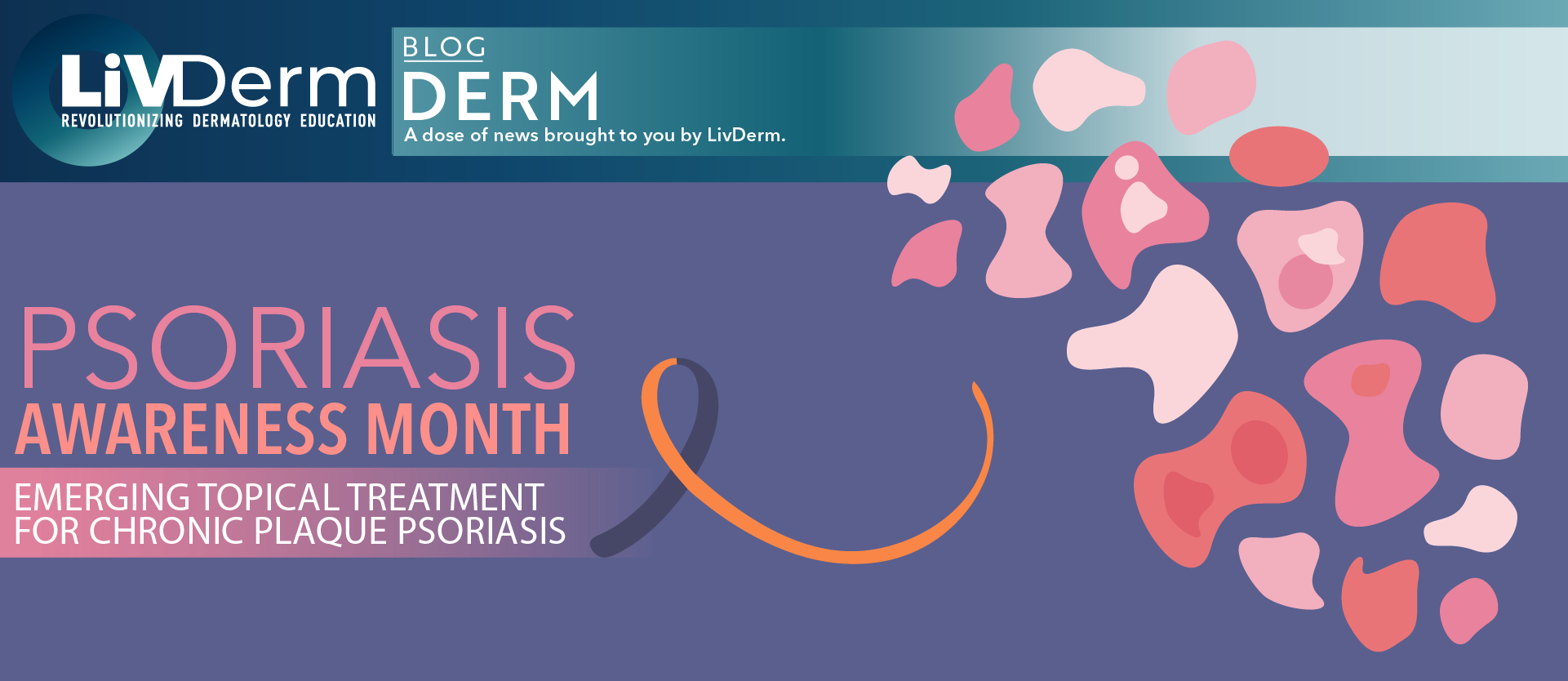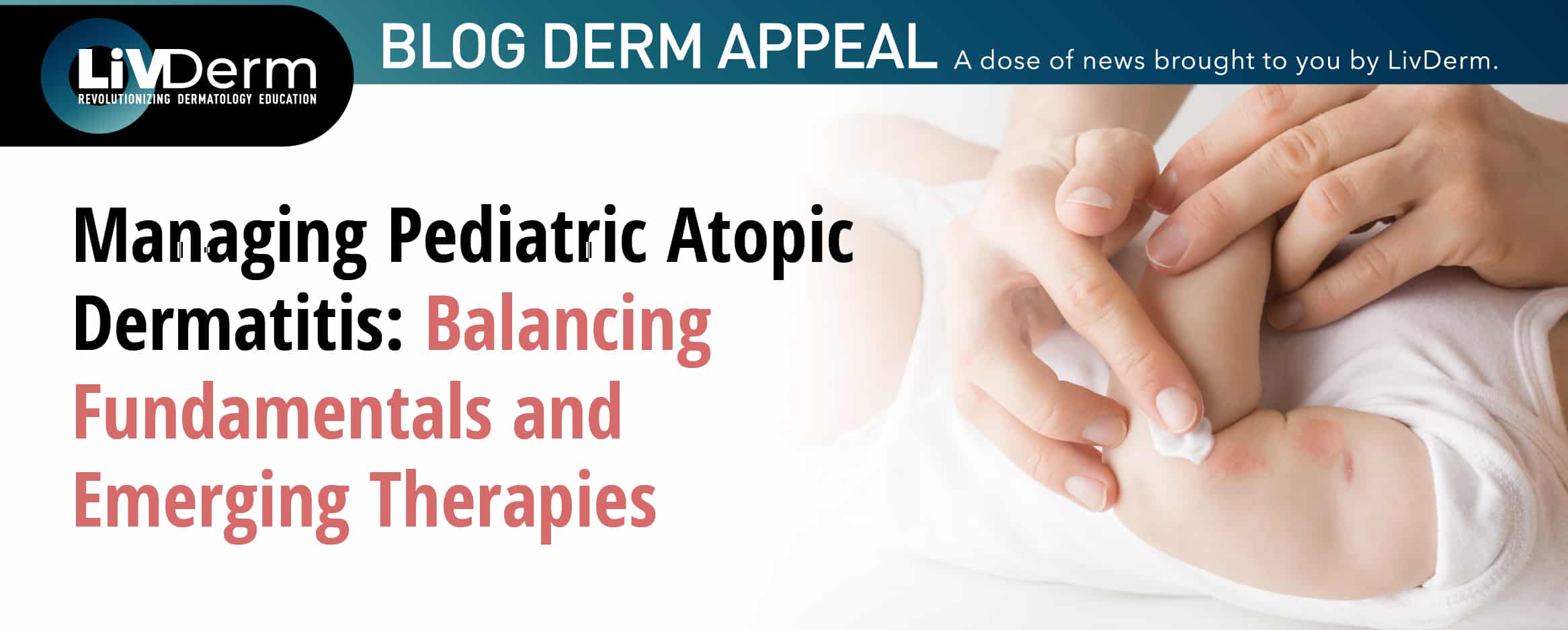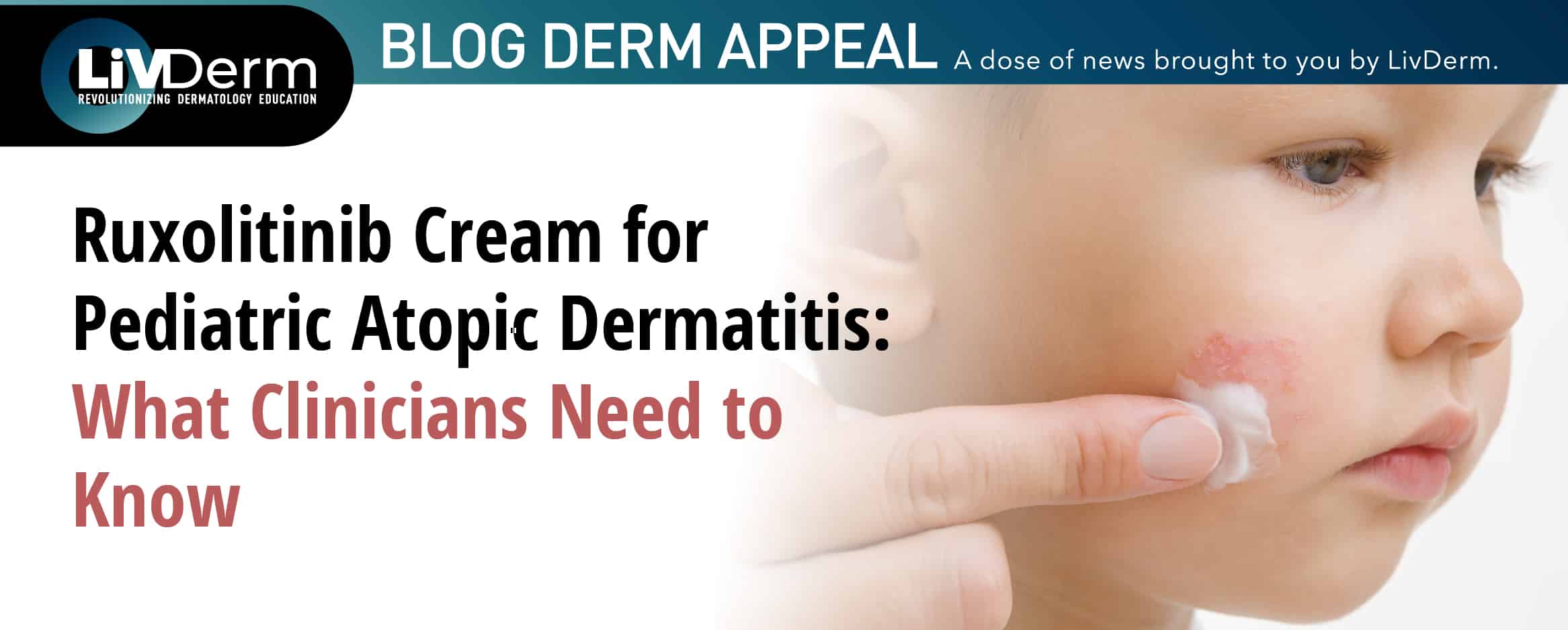August marks the beginning of Psoriasis Awareness Month, during which healthcare organizations such as LivDerm and the National Psoriasis Foundation bring attention to the common yet underappreciated skin disorder. Often triggered by stress, infections, and medications, the chronic inflammatory condition affects up to 125 million patients worldwide and has been linked to decreased quality of life along with an increased risk of comorbidities including diabetes, heart disease, and cancer.
While the majority of psoriasis therapeutic methods are topical interventions, the treatment of sensitive areas – such as the face and intertriginous areas – with topical agents requires careful consideration due to the sensitivity of the skin as well as its thinness. These factors may enhance systemic absorption of medications and thus, put patients at a higher risk of adverse reactions. Researchers are evaluating the use of systemic oral phosphodiesterase type 4 (PDE-4) inhibitors, which have previously proven effective in treating symptoms of psoriasis, as a potential alternative to existing topical medications. Emerging research published in the New England Journal of Medicine examines PDE-4-inhibiting roflumilast cream for the treatment of chronic plaque psoriasis.
Roflumilast for Chronic Plaque Psoriasis
The phase 2b, double-blind trial investigated the efficacy of roflumilast treatment in patients with chronic plaque psoriasis. Researchers randomly assigned adult participants to use either roflumilast 0.3% cream, roflumilast 0.15% cream, or a placebo topical once daily for a total of 12 weeks. The primary efficacy outcome was an investigator’s global assessment (IGA) status of clear or almost clear skin at week 6 of the trial. Status was assessed using a 5-point scale of plaque thickening, scaling, and erythema; a score of 0 indicated clear skin, 1 almost clear, and 4 represented the presence of severe symptoms. In addition, secondary outcomes included an IGA score indicating clear or almost clear alongside a 2-grade improvement in IGA score for the intertriginous area as well as change in the Psoriasis Area and Severity Index (PASI) score. The safety of roflumilast cream was also assessed.
Symptoms Cleared with Topical Cream
Out of the 331 study participants, 109 were given roflumilast 0.3% cream, 113 received roflumilast 0.15% cream, and 109 received the placebo medication. Upon evaluation, 28% of patients in the 0.3% group exhibited IGA scores of clear or almost clear at week 6, compared with 23% of the 0.15% group, and only 8% of the placebo group.
Approximately 15% of patients among the cohort had baseline intertriginous psoriasis of at least mild severity; an IGA score at week 6 indicating clear or almost clear as well as a 2-grade improvement in the intertriginous-area IGA score was detected in 73% of patients in the 0.3% group, 44% of those in the 0.15% group, and only 29% of those being treated with a placebo cream. Application-site reactions occurred with similar frequency in all groups.
“The mean baseline PASI scores were 7.7 in the roflumilast 0.3% group, 8.0 in the roflumilast 0.15% group, and 7.6 in the vehicle group; the mean change from baseline at week 6 was −50.0%, −49.0%, and −17.8%, respectively,” the researchers reported.
The latest findings indicate that Roflumilast cream administered once daily to areas affected by psoriasis was a superior treatment method compared to placebo medication in leading to a state of clear or almost clear skin in 6 weeks.
The study’s authors note that longer and larger trails are needed to determine the durability and safety of roflumilast cream in psoriasis patients. Furthermore, they acknowledge the limitations of their trial, which included the short duration of 12 weeks, the duration of only 6 weeks for assessing the primary outcome, as we all as the limited sample size of patients with intertriginous psoriasis. Therefore, generalizable clinical conclusions cannot be drawn at this time without further evidence. Nonetheless, the latest data shows promise of the efficacy of topical PDE-4 inhibitors in the treatment of chronic inflammatory skin conditions and prompts future investigation.

















